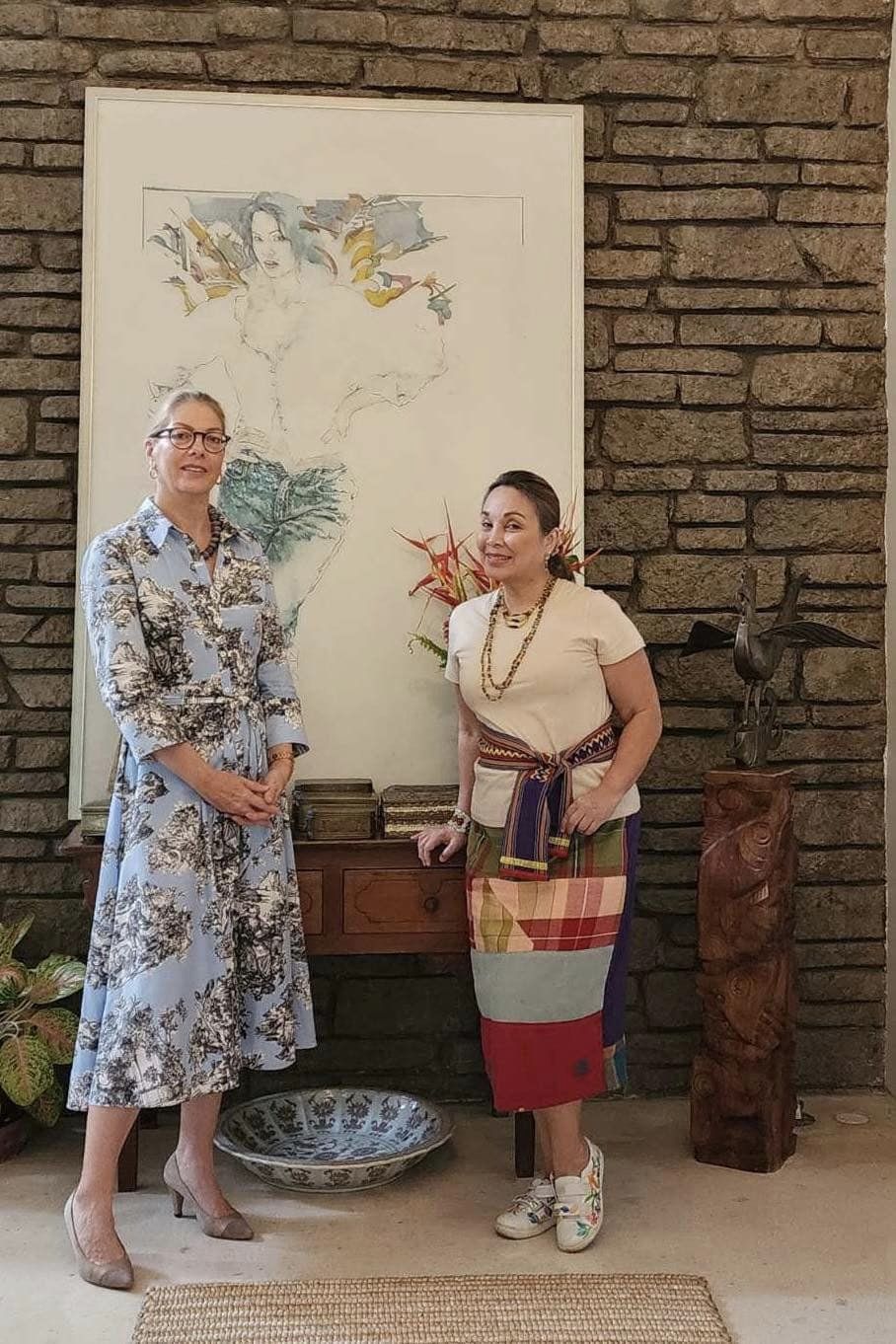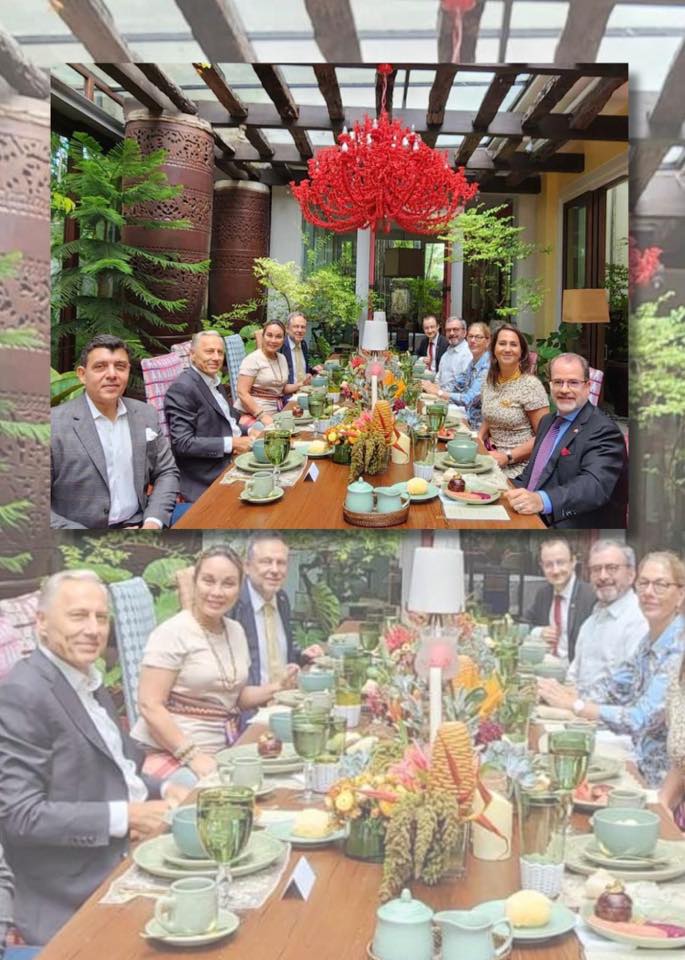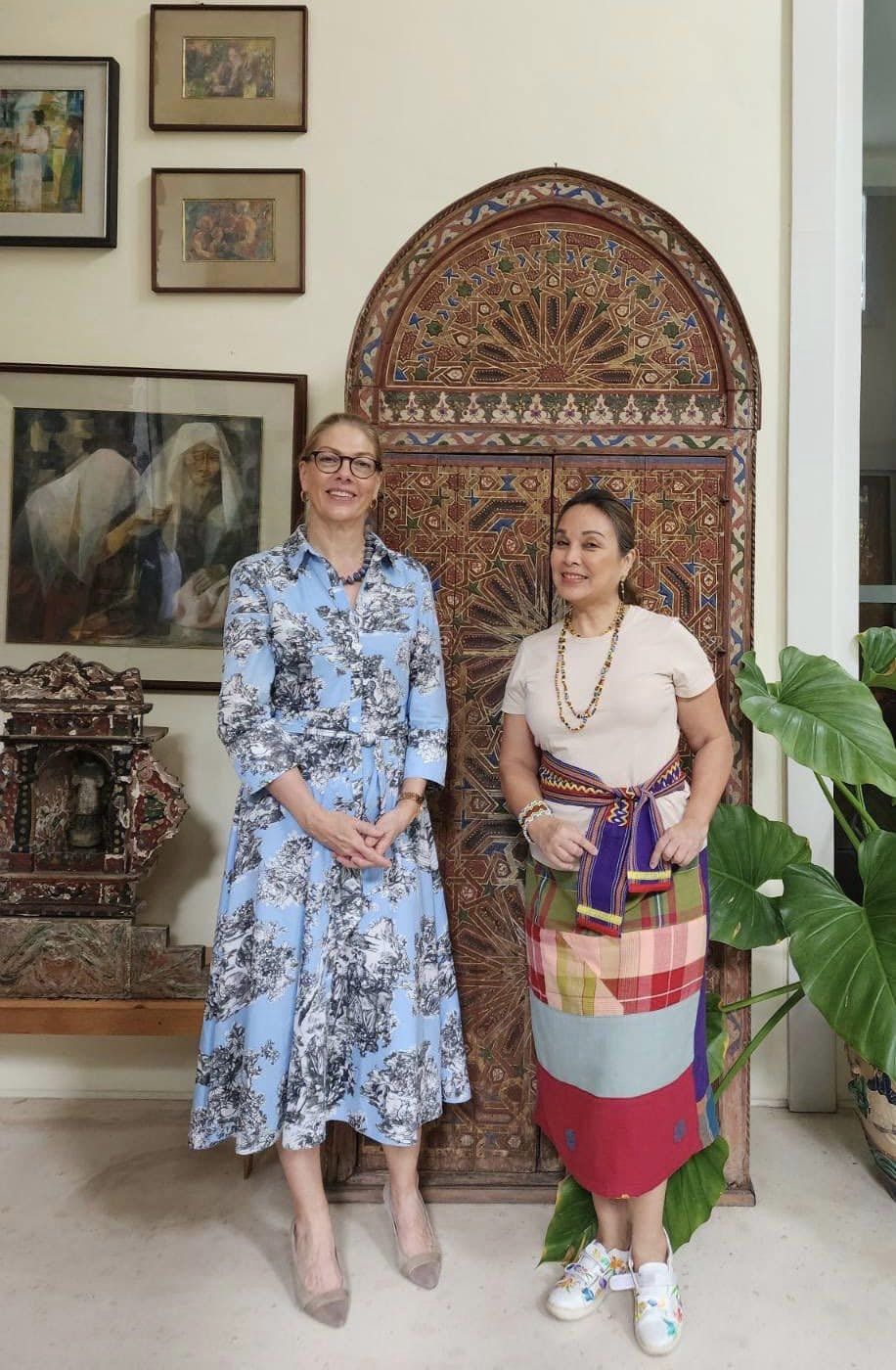German Ambassador Anke Reiffenstuel is preparing to conclude her term this month, and the farewell gathering I hosted was a mixture of emotions but filled with learnings and lasting memories.
The meeting, attended by fellow Ambassadors, spanned almost two hours of engaging topics. Our discussions included agricultural waste management, programs that promote the creation of green jobs in offshore wind generation, and the strong connections between the Philippines and other European countries like Germany and Belgium.
The ties between the Philippines and Germany are deep-rooted. Our Philippine national hero Jose Rizal pursued his ophthalmology studies in Heidelberg; he resided with the Ullmer family in Wilhelmsfeld and frequently visited the banks of the Neckar River where he was inspired to write A Las Flores de Heidelberg. Rizal also presented textiles as gifts to his friend Adolf Bastian, who later founded the Berlin Ethnological Museum. Interestingly, Rizal also traveled to Ghent, Belgium, and had a Filipino as a roommate. It was in Ghent where the El Filibusterismo was published, according to the Belgian Ambassador. My new discovery has made me eagerly anticipate the launch of another Philippine Studies Program, this time at the University of Ghent, a project I have been supporting since its inaugural launch at SOAS in London in 2017.
Aside from our close connections, we also discussed climate-related issues, collaborations that encompass sustainable forest management, and the exchange of technical know-how. Interestingly, our knowledgeable Belgian Ambassador informed the group of a state university in the Philippines that transforms agricultural waste into aqua feeds.
As a farewell gift, I presented Ambassador Anke with a necklace crafted from dried banana leaves by a group from Dumalinao in Zamboanga del Sur.
Until we meet again, our good friend Anke! Looking forward to more collaborations with you.




